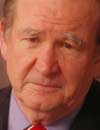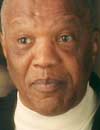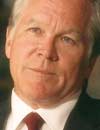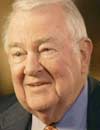- Steven Aftergood
Director, FAS Project on Government Secrecy - Dean Baquet
Former editor, Los Angeles Times - Ben Bradlee
Former editor, The Washington Post - Patrick Buchanan
Commentator; former adviser to President Nixon - Earl Caldwell
Reporter - Mark Corallo
Former director of public affairs, Justice Department - Walter Cronkite
Former anchor, CBS Evening News - Len Downie
Editor, The Washington Post - Mark Feldstein
Professor, The George Washington University - James Goodale
First Amendment attorney - Seymour Hersh
Writer, The New Yorker - John Miller
Assistant director for public affairs, FBI - Scott Johnson
Blogger, Power Line - Bill Keller
Editor, The New York Times - John McLaughlin
Former deputy director, CIA - Edwin Meese
Former attorney general - Judith Miller
Freelance reporter - Dana Priest
Reporter, The Washington Post - James Risen
Reporter, The New York Times - Tom Rosenstiel
Director, Project for Excellence in Journalism - Brian Ross
Chief investigative correspondent, ABC News - William Safire
Columnist, The New York Times - David Szady
Former assistant director of counter-intelligence, FBI
[How do you balance a free press and national security during wartime?]
A vigorous and vital press is even more important in times of national crisis, including war, than it is in times of tranquility. When the nation faces urgent decisions of whether to persist in military activity, whether to initiate new pre-emptive strikes, whether to alter our energy policies, how to deal with questions of foreign aid, disaster relief, all of these things, we need not just two sides of an issue; we need a dozen sides of each issue. The only way we get that is by going beyond the official storyline to enrich it with multiple perspectives from multiple sources. What has happened is that new obstacles have been erected in the path of journalists who are trying to get those alternate sources. ...
It's been said that information is the oxygen of democracy, and when you cut back on it, the quality of our democratic life suffers. Sure the press has problems, and the press has to deal with them one way or another. But they're not only the press' problems. They're the problems of all of us who are concerned citizens, and if we don't find a way to reinvigorate public access to information, then we will all pay the price. ...
It is through the press that most of us get our information. Most Americans will never file a Freedom of Information Act request, and there's no reason that they should. We all have multiple conduits for information and all kinds of ways to educate ourselves. But what's happening is that all of those conduits are being constricted and constrained by official secrecy, and it is really having an impact on the quality of our deliberation. ...
To back up and explain it to people, The New York Times, the L.A. Times, The Washington Post, and The Wall Street Journal reported on a secret government surveillance program to monitor financial transactions around the world, to oversimplify it, and the government asked us not to publish it. Going back to the example of Arnold Schwarzenegger, my job is to publish stuff. ... My job is to cover the war on terrorism. My job is to cover the government in its prosecution of the war on terrorism. One of the biggest controversies in America right now is the government's prosecution of the war in Iraq and the war on terrorism, and my job is to cover that with tremendous aggression, and I do.
Even if it reveals secrets that the government says will help the enemy.
Yes, because it's not my job to believe everything the government tells me. If the government had offered compelling proof that a life would be threatened, or if the government offered compelling proof that an ongoing operation would have been threatened, I would have felt differently.
In fact, we've held stuff back when the government has offered compelling proof of that. But I put the emphasis on "compelling proof," because history shows that the government doesn't always tell the truth when it offers a reason not to publish.
So Dean Baquet has the right to decide when something damages national security and when it doesn't?
My role as the editor of a newspaper, and the newspaper's role in the society, is in fact to try to make that kind of judgment.
That may sound arrogant, but it's not. If you read the language of the [Supreme Court] justices in the Pentagon Papers case, they specifically said that newspapers have this role in the society. In fact, it's our patriotic role. ... It's our patriotic role to fulfill our place in the firmament of the government, and fulfilling my place is to aggressively cover the government, and that means not always believing them.
In the Pentagon Papers case, the Supreme Court held that there was no right of prior restraint. They didn't say you couldn't be prosecuted for espionage. If you're going to make [secrets] like that public, you put yourself in harm's way at that point, in terms of the law of the United States.
Well, newspapers sometimes have to take the risk that they're going to be prosecuted ... if, in the end, you feel that your role is to publish this stuff. And in that case, I don't think the government had a compelling case. Some readers may say that's arrogant of me to make that determination, but here's my job: The L.A. Times finds out all [this] stuff; it talks to people who like the program; it talks to people who criticize the program. It goes in, and we talk to the government, and the government makes its case, and then we sit down and prudently debate among ourselves whether in that mix of stuff is a story.
In this case, it was clear to me that in that mix of stuff -- and I must say, the editors of every major newspaper in America had the same reaction -- it was clear to me that there was a story there, no matter what the repercussions were.
The director of national intelligence, John Negroponte, it's my understanding, has called you.
Mm-hmm. Absolutely.
Not just about this story, but other stories. And I know in one case, as I understand it, you didn't run the story.
Yeah. That was an interesting case. ... He made the case that we didn't have it right, but he wouldn't say what we didn't have right. And in that case, we did all the reporting we could, and we weren't 100 percent convinced we had the story. ... Essentially, we had allegations that the government had this surveillance operation set up. But we couldn't prove what kind of surveillance operation it was, what it was doing. …
Negroponte didn't even have to call. If we had written a story at that point, it would have said something like this: There are a bunch of stuff in a room, and it looks like surveillance stuff, and we don't really know what it is, but isn't this interesting? Well, that's not a story to me, and that was the judgment that we made not to publish it. ...
When George Tenet was the head of the CIA, we had a story in the works about how the CIA, because it had lost its spying apparatus in Iran, was essentially using the Iranian community in Los Angeles as its way of spying on Iran. ... Tenet called me at home. He made the case -- and it wasn't convincing -- he made the case that we would be revealing state secrets. But when I talked to the reporter and I read the story, if we were revealing state secrets, we were the last one to reveal it, because it was pretty clear that every goddamn person in the Iranian community in Los Angeles knew about it.
That informs the decision of today about the spying system. They will always say, "Don't report this because you're revealing state secrets." That's their role in the dance of democracy, and it's our role to try to best assess whether they're telling us the truth. In the case of [the SWIFT financial surveillance program] and in the case of the Iranian spying story, I determined and the paper determined that they weren't telling the truth, that they were exaggerating it. ...
[Do you] do a gut check when the director of national intelligence or the CIA director calls you?
Oh, sure. You talk it over with people in the Washington bureau; you talk to the reporter.
You don't ever say, "What are you getting me into?"
No. I want to be in that kind of situation, you know? There are only ... half a dozen news organizations in America that are in the position to find out that kind of stuff. I want to be one of them. And the price you pay is every once in a while you get a phone call like that, and you get a little nervous. Actually, I didn't get a little nervous. I thought it was great. I thought we obviously had a really good story. I had to make a judgment, but that was fine.
I would rather get that phone call and know I had a good story in the works than the alternative, which is to not be one of the institutions that gets that kind of story. I'm very competitive about that kind of story. ...
The guy that's complaining is the guy that got burned. And that doesn't mean it's good or bad. It gets complicated if the person who is talking to you is committing a crime by talking to you; in other words, is giving you really classified information that you've got no business knowing.
You mean like national security eavesdropping?
Yeah, national security is the bugaboo. As soon as you say national security, everybody goes, "Oh, my God, he's a traitor."
I remember being a young reporter, and I was still writing about foreign aid. It wasn't the most complicated story in the world, but there was some information that I didn't have, and I went up to a congressman called Otto Passman from Louisiana. He had the document, and by God, if halfway through this interview he didn't pull the document out, take his scissors out, cut the word[s] "Classified: Top Secret" right out of it, and give it to me. And I said, "Thank you very much," and got out of there. ... And he did it for a purpose. He was against foreign aid, ... so he wanted it out, and he put it out. ...
When the Pentagon Papers showed up, The New York Times has already published and had been enjoined, right? Why did you decide to publish it? Weren't you violating national security?
The prosecutor eventually said there was not a single matter involving national security in the Pentagon Papers. It took him 16 years to say it, but he said it.
And why did we publish it? The story that we ran did not violate national security. When we got possession of the Pentagon Papers, we never ran anything that was involved national security, and Richard Helms, former head of the CIA, testified to that. There were two CIA agents in Saigon identified in the Pentagon Papers by name, and when we noticed that, everybody said, "Well, God, we're not going to name CIA agents." So we said, "No," and took that out. I went around to Helms, looking for brownie points, and I told him that we'd kept it out. He said, "That's very nice of you, but we took those guys out of Saigon the day the investigation started." ...
We've interviewed a number of people who say, "Who are you, [New York Times executive editor] Bill Keller or [Washington Post executive editor] Len Downie, to decide what should be secret and what should not be secret, what the public should know about and not know when it's a matter of national security?"
Well, just because some guy who sold cars in Kansas City last year comes to town as an assistant secretary of something and tells me that it's top secret and the world can't afford to know it, that does not prove it to me. It really doesn't.
I can only speak for myself and my generation, but we have certain credentials in this area. I worked for the government for two and a half years. I was the press attaché in Paris. I had a very high clearance. I could read any damn cable I wanted to. And I served four years in the United States Navy on a destroyer. I know what real national security is. But just because this guy came to town and says, "Well, we can't tell you that; it's national security," I say, "Excuse me?"
I remember the first words Richard Nixon said about the Watergate case was that he was going to be unable to discuss it because it involved matters of national security. That was just baloney.
What do you think about The New York Times reporting a secret program of eavesdropping by the National Security Agency [NSA]?
The New York Times held that story for a year as I understand it, so clearly they had concerns and qualms about whether they would damage the national security by publishing that. I would not have published that in wartime if I were the editor of The New York Times.
While I oppose the war, I don't think you do something like that which would, I think, damage the war effort and the cause for which people are dying. That's a tough call, but I would not have done what the Times did. And I do think the individual that leaked it to the Times, they should be prosecuted and sent to prison.
The Washington Post has published, among other things, the fact that countries in Eastern Europe maintain secret detention facilities for the United States to deposit so-called high-value detainees or others apparently linked to terrorism.
They've damaged, in no doubt, the countries that are probably assisting the United States of America. You've damaged them at home because they've worked in alliance with us.
What bothers me about this is a number of these newspapers cheer us into war, and then Americans go into battle, and they get killed in great numbers. And then these folks tend to undermine the war effort.
It was my objection in the Pentagon Papers. They had nothing to do with Nixon. That, to me, was a clear effort to sabotage the war effort in Vietnam, which both The New York Times and Washington Post had supported. We had asked for time to review them so that we could see that no sources and methods had been compromised. It had nothing to do with Nixon. And they wouldn't give us that time even though they held those papers for three months so that they could present them in such a way as to make them do maximum damage to the war effort. I thought that was quasi-treasonist in wartime, yeah.
You don't think the press has an obligation to act as a tribune, if you will, of the people?
Do you think the press should report that some soldier took a Koran and flushed it down a toilet when he knows the results could be riots and demonstrations in which people get killed? I think the press has a duty and an obligation to consider the consequences of what they report when they report it, especially when lives are at stake.
Yeah, but you don't know, as a reporter or a columnist, what the actual reaction is to many of the things you may say -- especially you, as a columnist -- that are, if you will, designed to get people to take notice.
I don't think you reporters can fall back on the "I didn't know what the reaction would be" in every case. I think they should consider the reaction. Certainly they do when they have information about the private lives of public men.
Journalists say: "Look, should I really report this? People really have a right to know? This could damage or destroy this guy. Is it really relevant?" They'd make all those judgments. And I think they ought to make a judgment, especially when we're at war, as to what will be the effect if I publish this? Certainly The New York Times did that when they waited for a full year to publish this story which they had and they held.
And they removed elements of the story ... related to sources and methods.
Well, you're making my point, which is that they had themselves to reflect and consider and ask government to "Please help us so that we will not do damage, or any damage that's done will be minimized." So I think that's a sense of responsibility, but, as I say, I think if I were at the Times, I would not have reported that. ...
What's your reaction now when we hear members of this administration saying that The New York Times and others are damaging national security by revealing public programs?
It's laughable. Of course they say that. It's laughable for them to say now that a newspaper is going against national security by disclosing some program that they're operating. Why are they saying this? Because it's the most secret administration in probably the history of the country. … But the newspaper didn't make this up. Somebody in this administration felt it was so important that they came to the newspaper and said, "This is something you ought to know about." …
The press, we have this other responsibility to stand alone and to look and see for ourselves, for us to know and to say, not just to know and play "I've got a secret," but for us to know and to tell. ...
Yeah, you can make that case. ... Again, I don't think it's up to a news organization to decide what's secret and what isn't. ... I guess what offends me is that when you are a government official, and you are entrusted with keeping classified information secret and you take an oath, ... if you divulge this, you've broken the law. You may have put people's lives in danger; you may have put my family's life in danger.
There are other ways to satisfy your concerns about a classified program. There are whistleblower laws. ... They could go to any member of Congress and say, "I have a concern about a program we're working on; I have a concern about the legality," and let Congress deal with it. That's what they're there for. ...
But doesn't it become a catch-22? Because they can't then talk about it either, the members of Congress. They can't go to the press and talk about a classified program any more than anyone else can without violating the law.
That is true. But ... I guess there's some leeway for a senator. ... I just look at some of those leaks, and unfortunately I think they were politically motivated, and there were other ways to handle it. Now, it doesn't mean that I believe that the reporters should be subpoenaed.
There's a major leak investigation going on ... about this [National Security Agency (NSA) wiretapping] and other cases as well. ... Have they interviewed you?
I've been interviewed.
Did you give up your sources?
I didn't know anything about the program.
So you've never been briefed?
No, I was never briefed.
What did [the FBI] ask you?
They just wanted to know why these kinds of leaks happen. ... I said: "Well, unfortunately, ... 99 percent of the time it's politics. But it's that 1 percent that's seriously concerned about the program that has to be protected."
I don't know the facts of the case. ... I don't know what kind of damage assessment has been done. But I'd want to see all of that if I was at the Justice Department and I had the responsibility of subpoenaing a reporter. ...
... How do you describe the outpouring of invective and attack that's taken place since the [SWIFT] financial terrorism surveillance program was revealed [by The New York Times]?
I think that the public and the politicians have had enough. In this particular case, with this SWIFT program being divulged, people got a sense that real harm was done in divulging it; that there were no legal issues; ... that it was completely legal; that it was an incredibly helpful tool in the war on terror. And the public looked at it and said: "Hey, who gives you, [New York Times executive editor] Bill Keller, the right to determine what makes me safe? You just made me less safe." I think that's what did it.
But in this case, The New York Times took at least four or five months before they published. ... The SWIFT group itself had questions about its legality a number of times. And as far as we know, the operation continues. ... So where's the damage?
The damage is in divulging secrets to our enemies. The damage is that they watch us closely. The damage is that they know -- or they want to know -- everything we're doing, and it's in our interests to keep everything that we possibly can secret from them. I think the public looked at this one and said there was no good reason: It didn't involve American citizens; there were no constitutional issues here. This is strictly arrogance by what they see as the elite media, The New York Times.
But there are American citizens involved in some of the surveillance and the financial transactions. They're not excluded.
Well, they are, but it's very targeted, as I understand it. Again, I don't know anything about the program, but from what I've read, it's a very targeted program. But again, this is a program that Congress was briefed on in full only once the administration knew that The New York Times had the story. Well, interestingly enough, when you look at the fallout from this story, you didn't hear any of the Democrats screaming at the administration over this one. ... They didn't feel that they could defend The New York Times on this one, and that says a lot.
I think that Bill Keller's public explanation lit the fire even more. It was this sort of, "Well, even though we knew that there were really no concerns, hey, everybody knew about it anyway, so we're going to publish it." Well, most people in America didn't know about it, and I think people were offended by it. I think they just found it to be arrogant. ...
... Yesterday we interviewed a recently retired head of counterintelligence for the FBI, [David Szady], who was in charge of investigating leaks of national security information -- for example, the eavesdropping NSA [National Security Agency] leak -- which the head of the CIA says has demanded an investigation. And he was adamant. He said, "No one has the right to reveal secrets that might damage the national security of the United States." Who are you, for example, Mr. Cronkite, to decide on your own that you should reveal that kind of information that could damage the country?
... Well, it depends on the information, I'd say. [The reporter] should not carry this burden alone, but if his newspaper or his broadcasting organization -- his leadership -- agrees with him or her that this story is important to the survival of the democracy -- literally, of that importance -- then I say that they break the pledge of secrecy and go on the air with it, or into press. ...
Certainly they're taking a risk. But then, when they get into the courtroom, they continue to protect their sources, then the public should understand ... with the trial what was at stake, or what the individual thought at stake. ... If you're an investigative reporter, you're going to face that situation sooner or later. Then the courage of the individual will [determine] whether he or she reveals sources. ...
When someone argues that there's a threat to national security, what does that mean to you?
First of all, it means that I take it seriously. In deciding what we're going to publish in The Washington Post, we do not want to knowingly harm human life or knowingly harm national security. Now, that obviously is an easy thing to say, and actually making decisions about it is much more difficult, because there are all these gray areas. ...
But we're at war. The president says we're at war.
Yes he does.
I could see someone out there saying, "Who are you to decide what's in the interest of the country? What's national security? What isn't?"
The Washington Post consists of a certain number of pages every day. We can only fit so much news in there every day. ... That's the first threshold of our decision-making. Then we have to decide whether what we're going to publish is accurate and whether it's fair, whether it's libelous or not. We make these decisions every day, so decisions about whether something would be harmful to national security or not is just another one of those many decisions we make about what we're going to publish or not going to publish.
Under our constitutional system, those decisions cannot be made by the government. That's unconstitutional. And it also would be dangerous to our democracy. It has to be left to editors and television producers to make these decisions. ...
It caused an uproar in Europe. There were investigations.
I don't regard that as a national security problem. A national security problem would be endangering agents, causing sensitive operations to end as a result of our reporting unnecessarily. The controversy, the policy discussions -- that's what journalism is for, to cause those things to take place. ...
But you know that there's been concern, particularly in the intelligence community, for many years that because of these leaks, because America can't keep secrets, it damages them at home; they'll be less cooperative with us.
Yeah, that's an argument that's made on both sides. But when you look at history, when you look at actual operations and whether or not they've been caused to end by this kind of reporting, you don't see much evidence of that. ...
When another newspaper published that Osama bin Laden was using a satellite phone, apparently afterward he threw it away and has never been heard again on such a phone, right?
... There have been cases where we have done reporting about the hunt for Osama bin Laden ... and other members of Al Qaeda, and means of communication have arisen in our reporting. Government officials have raised questions about whether or not that reporting would cause terrorist leaders to alter their behavior because of technological things we might publish, ... and we've not published them for that reason. Whether the incident you cited actually took place or not I believe is in controversy. ...
Porter Goss at a hearing says, "I am looking forward to seeing reporters standing in the well of the grand jury and testifying." ... So he clearly feels that your newspaper and The New York Times have been damaging national security.
Either he feels that, or he feels that we have brought scrutiny of actions that the CIA has undertaken that are open to review by the public and by the Congress, and he didn't want to have them reviewed by the public and the Congress. ...
Do you believe certain things should be classified?
Sure. As I say, there are lots of things we know ... that have not been published in The Washington Post. There are things that I know that were reported as long ago by reporters as several decades ago that we've never published in the newspaper, and I've never uttered a word about, because it's clear to me it would be harmful to national security. But at the same time, many times that claim is made by the government because they want to avoid embarrassment.
[Give me an example of a time in which the press published something damaging to national security.]
The whole notion of the press jeopardizing national security has been grossly exaggerated. There is virtually no instance of media coverage actually causing any harm to national security. One of the very few cases where the press might have caused harm to national security occurred during World War II, when the Chicago Tribune published information that suggested that the Americans had broken the codes of the Japanese during World War II.
FDR's administration weighed prosecuting the Chicago Tribune for that disclosure, but ultimately decided not to because it turned out the Japanese had not noticed the story in the Chicago Trib, and therefore to actually prosecute them would have risked more harm by alerting the Japanese to the leak than if they had just kept silent. So they kept silent.
So you're saying that there's a lot of talk about the media actually damaging national security, but in reality almost no examples.
That's exactly right. Governments never like their secrets exposed, whether they're Democratic or Republican governments. If you look at the history of journalism, administrations of both parties continually rail about the harm in national security from news media leaks. But if you actually examine the cases, there are essentially no instances of actual harm to national security that have occurred because of disclosures by the press. ...
Since the beginning of the republic, there has been this constant tension between liberty and order. Liberty and order are always pitted against each other in times of war. And in times of war, when liberty clashes with order, the impetus is always to err on the side of order because the threats seem so immediate, irreparable and infinite, and matter of life and death. ... Better to censor the press. Better to withhold this information. Err on the side of caution. ...
It's particularly troublesome now, on the war on terror, because this is a war seemingly without end. ... This is a war that could go for decades, for generations. How do we know when it's over? We don't. So the idea of suspending our liberties and holding them at bay -- whether it's about the press or any other institution -- is really troublesome, because there's seemingly no end in sight. ...
In the 1950s and '60s ... there wasn't this clash between the press and the government, particularly over national security. The New York Times didn't publish the Bay of Pigs story because the president called up and said, "Don't publish it."
That's absolutely right. The media in America has largely been docile and deferential throughout history. You've had some occasional exceptions. The muckrakers a century ago were more questioning of government, although even then it was more state and local government than federal. And even when it was federal, it was more about domestic issues, not national security issues.
But in the aftermath of World War II, you had a news media that was largely docile, that was respectful of authority, that did what the government told it to do, by and large. And when the government requested that it withhold information, most journalists, most news editors were only too happy to salute. When they were asked to jump, they asked, "How high?"
So President Kennedy was able to get The New York Times to withhold publication of the Bay of Pigs on the grounds that that would protect the national security. Later, of course, the Bay of Pigs turned out to be this huge fiasco, and JFK himself said he wished the Times had published. In fact, not publishing it endangered national security far more than publishing it did, and this characterized this whole period of news media deference to government, to authority, throughout the middle-20th century.
... There are parts of classified information that shouldn't be leaked; that are deep, dark secrets of the government, all right? Then there's a level way below that which should never be classified in the first place. That information does not belong to the government; it belongs to the people. The government has no right to take information that we need to know so we can function as a public and say, "It's mine; it's ours."
... [What are your thoughts on] the NSA eavesdropping situation?
I think the NSA eavesdropping case is almost as good a case as the case where Dana Priest wrote about the prisons in Europe for the CIA. I say almost as good because when you look at the polls, 53 or 51 percent of the people seem to think it's OK to tap people with respect to their conversations in this country if they're talking to a terrorist. Now, if, say, half the people think it's OK and half don't, I don't think in human terms it's quite the slam dunk that you have with [secret prisons]. ...
But wait a second now. The New York Times published information about a closely held national security wiretapping program and subsequently, in a separate article, published information about how it was being done, through switches at the telephone company. And you're saying that's legal?
Well, let's look at it from government's point of view. They should make every effort to keep that information closely held; everyone concedes that. But because they can do that doesn't mean that you can't publish it.
You have to ask yourself: "What does that information do to the national security of the United States from a First Amendment point of view? Does it -- the publication -- create a clear and present danger to the United States?" If you think that's a clear yes -- which I don't -- then you're right. But there's nothing in the statute that talks about clear and present danger. There's just a lot of language saying you can't do this, you can't do that. There's no First Amendment within the statute. …
[The law] says, for example, that you cannot publish any classified information about communications intelligence. I'll bet you The Washington Post and The New York Times, the Chicago Tribune, the L.A. Times do that every other day. Any information about communications intelligence? It's a wide, sweeping act. ...
We don't have to protect all speech, and everyone would agree with that general analysis. But look at the government's argument here. They said that by publishing what The New York Times published, that terrorists were alerted that there was a phone program out there tracing their phone calls. You think that comes as a surprise to them? ... They're as smart as we are. I hate to say that. ... If they really wanted to have a secure communication, they would have encoded it. ...
But the president of the United States told [New York Times executive editor] Bill Keller, "You're going to have, for all intents and purposes, blood on your hands if there's another attack if you run this [NSA wiretapping] story." He's the commander in chief in the Constitution.
... Presidents have been telling the press that they would have blood on their hands for over 40 years. I can think back particularly to the Bay of Pigs invasion, in which President Kennedy told the publisher of The New York Times, effectively, "You will have blood on your hands if you publish this story." The New York Times published, substantially, all of that story. Kennedy went back to them after the fiasco and said, "I wish you published more."
This is a standard technique. It happens probably more to The Washington Post than The New York Times. You have to sit there and make a judgment as to whether the president really has a case or not, because otherwise, you won't be able to publish anything about national security stories. ...
But doesn't the nation or the government deserve to have secrets, to be able to hold onto information to defend the country?
It's not about secrets; it's about integrity. I mean, there's no secret that the war isn't going well in Iraq. ...
But what about, for example, NSA [National Security Agency] eavesdropping program … they're saying you're giving aid and comfort to the enemy; you're letting the terrorists know what we're doing.
That's apples and oranges. You're talking about something else. I'm talking about the notion -- look, most of the real secrets in America, as far as I'm concerned, aren't publishable in the sense that, who cares? I remember one time when I was working at The New York Times, somebody sent me at the height of the Vietnam War … [material] on our satellite system: where they were going to be in space at a certain time, the high point, the low point, the five seconds they're going to be looking down the main street of this city in the Soviet Union . ... And who cares? I mean, that's not a story.
Or where attack submarines are at any given time -- that's not a story because it's just not a story. It's sort of like a factoid. Most of the stuff that's secret isn't in our purview. …
You're saying that it's not really worth anything to anybody to know that other than the people who are doing it, so why publish it?
Most of the important secrets that I've known about, the real secrets that are known about aren't worth publishing. They're not worth it. Even now I'll write something about what we're doing in Iran. I don't know much more about literally what we're doing, perhaps, than I write.
It's not me being a censor. It's just saying that everybody doesn't have to know everything. I'm not convinced that every secret has to be published. I think there are secrets worth keeping, and I think there are secrets not worth keeping.
Basically my approach is sort of the Jeffersonian approach: It's their job to keep a secret and my job to publish it, if it's worth publishing.
Why would they then want to do things like prosecute you under the Espionage Act or call your editors and tell them not to run the story -- there's documentary histories out there, Sy, on the public record.
Well, it's not different now under this guy [Bush] than it was 30 or 40 years ago. Then it was that if you write this story, why, the Communists will be sending paratroopers into the foothills of San Francisco.
It's the same story. What we do in the business is pretty simple. We get a lot of secrets, and some we publish, and some we don't publish. Where the problems get in, as you know, is sometimes when there's stuff that should be published that isn't published. I think that's more of a problem. ...
What do you mean?
Well, it's the classic stories like the NSA story not being published for a year, the Times story not being published for over a year, etc., etc. You know, I generally think you publish.
You think that the NSA story should have been published a year and a half earlier?
I really don't know all the facts of it. I know what I think are the public facts. I'm like a lot of people. I'm generally inclined to think you should publish, and that's why I'm a reporter and not an editor.
Most editors are different than you and me. I always think that they're all mice training to be rats, basically. So editors have a different point of view, and reporters have a different point of view, and that's the way it works.
There's been a truce, in effect, hasn't there, since at least 1974, when the [Justice Department] guidelines went in about subpoenaing reporters?
I'm not a legal scholar. I don't really know. I sure have been threatened enough with action, so I'm not sure there's much of a truce.
Lowell, I've been reporting, what, for about 40 years now on national security, some heinous events -- My Lai, Abu Ghraib. I don't think I've ever met a public official that didn't think he was doing the right thing. I can't think of one.
It's just the way it is. It's the inevitable, horrific conflict. You've got people in power, people in the public life, who are absolutely convinced they're doing the right thing, just like they were in Vietnam, just like they are in Iraq, just like they were at Abu Ghraib. ...
But the bottom line is people tend to think that they're always virtuous, and we always look at people as less than virtuous. That's our job. You can call it chasing conflict, but it's sort of chasing -- that's what we do for a living. We're there to say, "Hey."
So there's going to be horrific consequences always. And sometimes it will spill over in jail, and sometimes it won't. But none of this is going to change the structure. I think the moment anybody seriously tampers with the First Amendment you're going to see an outcry.
I've spent my life hearing that reporters [are] not popular in any way -- until somebody really challenges the First Amendment. Then all of a sudden you're going to see this country rise up, because it's really inherent. It's a great, powerful fact that we have on our side, which is that this is a nation that publishes. That separates us from a lot of other nations, and I don't think you can change it. I don't think this president can change it ... or one trial can change it, or some reporter's doing something right, or some reporter's doing something wrong. It's just there.
It's very, very powerful. And that's why, ultimately, whether the government likes it or not, we wear the white hat, because we are there, ringing the little bell, saying, "Truth, truth, truth," or at least our version of it. And it works.
So if you were to compare what's going on today to the Nixon era?
Same stuff. Remember they had the enemies list there? A lot of reporters were on it. We're never going to be popular with people that think they're doing the right thing that aren't doing the right thing. And of course, we ultimately have the ultimate say. We can shape public opinion, and we do.
Unfortunately, the sad thing for me is the media is so much dumber, in a crass sense. I can't get news at night on television that's valuable. ... I think there's been a lowering of standards, and that's very troubling. But that's a separate issue.
No, it's not, actually, in this overall [FRONTLINE] series on the press, for it seems that this may be a unique moment. The press is not only under pressure, let's say, in court or from the administration, but also the economic underpinnings of this business, this news-gathering business that when you joined up, it was growing, and then it had more public support. But now it has less public support and less profit. ...
... Yeah. Again, what comes up? In the middle of all this drive to squeeze newspapers and make them less useful and less interesting, because you're cutting out some of the stuff that people enjoy reading, the cultural sections and more in-depth reporting, at the same time look what else is going [on]: You've got this Internet; you've got this blog business; and you've got this huge accumulation of information that's flowing. We got sort of a real look at how Saddam Hussein died from one of those cell phone cameras.
I presume in another five years there will be a channel that would have recorded it, Channel 1,348, you know, featuring assassinations, when we won't have a warning that won't be covered by some channel. The Arab world is exploding with information in a way it hasn't been before, which is also sort of an antidote to some of our policies just in terms of demonstrating that it's a big world out there.
So you have competing interests. I don't see it as bleak at all. I think it's all very interesting.
My understanding was that prior to some of your reporting in the early '70s, and particularly in The New York Times starting in 1972, that The New York Times really didn't use confidential sources, or at least quote them.
I don't know that. I do remember during Watergate when I was playing catch-up to [Bob] Woodward and [Carl] Bernstein, who had done such spectacular work and then just sort of dazzled the city in '72, and I was asked in the spring of '73 to do something, I remember thinking, "Are you crazy?" These guys are writing front-page stories about people whose names I'd never heard of. I didn't cover the White House; I covered the Vietnam War.
But I remember when I got into some grand jury stuff, and basically the sources were, you know -- if I happened to be standing next to the urinal with somebody who knew something about grand jury, it was in The New York Times. That had never happened before. They'd never had grand jury information filtered into the newspaper. I remember that was a big, big issue. I remember senior editors padding up to me as I was writing the story and saying, "We don't do this at The New York Times." So it was a sea change.
We don't do what?
We don't run stories based on secondhand information from a grand jury. We don't trust grand juries. We don't do it. It's just not The New York Times' style. So it was different. It was different. But they changed. We all changed, because what do you think happened externally? You had a president that was in a grand jury.
What do you mean? I don't understand.
I'm talking about ultimately that some people in The New York Times think that stories [written] about the grand jury before a grand jury issued a formal report, did they think it was crawling in the gutter? They absolutely did. Talking about in '73 and '74. There was a useful debate inside the paper about what to do with some of these stories. Eventually they published them because the market was so hot.
But who crawled into the gutter first, we or the White House? And what's happening now, when you have this kind of leaking and manipulation of the press that go [on] so overtly now? I don't know what the truth is at all in the current case, the Valerie Plame case, who did what.
Well, it's clear that the White House was trying to disparage or spread gossip.
This is not new. It's just these guys did it in a way that was uniquely incompetent and sure to bite them back, and in a way that lowered the standards, because it was also sort of tawdry and cheap. You're dealing with somebody in the CIA presumably leaking information about somebody about whom he really didn't know much. Maybe there's no real mens rea [criminal intent]. Maybe the people in the White House didn't understand. But that's a whole new level of payback -- outing somebody in the CIA, if that's what happened.
So we're just a symptom. The problems we're having in the press with all these issues is the symptom of the problems they're having at the top of the government.
But again, you don't think that the introduction of waivers, the fact that some of your colleagues here in the city have gone in and testified, that all that hasn't weakened your ability to report?
Not even relevant. There's always been reporters that climb into the pocket. Come on. We all know reporters that take feeds, and, you know, in this town, that's sometimes the business. You can't cover the White House and be much of an oppositionist. You can't. It's just impossible [with] this White House.
But when you see then the Justice Department issuing subpoenas in San Francisco for reporters who are reporting on steroids in baseball or jailing a blogger [Josh Wolf], isn't that change?
There's always been tension between us and the people we cover. There's always been threats [of] ... action. I still think the overriding principle is the First Amendment -- I mean, Jeffersonian, classic. I still think any case that gets to the Supreme Court, if it gets there, can only be decided one way. That's my naivete, but you know.
Again, when you have an unpopular war like we have, and a war about which there's a huge amount of disagreement inside the community, inside the intelligence community, inside the military, I would tell you even inside agencies like the National Security Agency -- huge disagreements about what we're doing and how we're doing -- it's just manifest.
So for all of the pressure you're talking about, the fact is there's much more potential to report because there's much more dissention. It's an unhappy war. So I don't see it as relevant at all. I'm not trying to walk on your story here, fella.
No, no, you're not walking on the story. The story is where it goes. You ever been scared?
Scared of what?
You were going to get prosecuted for espionage; you were going to get raided; they're going to take your files, take you.
No.
Never?
Nope, never.
Even after you found out that [then-Deputy Chief of Staff to President Ford] Dick Cheney wrote a memo saying that you should be prosecuted for espionage?
He wanted people to go into my house -- he called it my apartment, but I had a house. You know, you're talking about that '75, '76 thing. I was told about it. At the time, I didn't think it was serious. ...
You were told?
Somebody in Justice warned me that they were looking at me. Duh. Big deal. It didn't happen. Anyway, I've got other fish to fry with Mr. Cheney, so who cares about what happened or didn't happen? It didn't happen is the point. I later learned -- I was interviewing somebody many years later, a young aide in the National Security Council working for Henry Kissinger, [who] once had told [then-Chief of Staff] Al Haig that I would take the bus. And Al Haig instructed him to make sure he sat behind me on the bus. I thought that was pretty funny -- I mean, high camp.
Listen on my phone -- what do I care? I'm still doing my business. It's still America. I'm not afraid. I don't think they're out to get me. I just don't, period. And maybe it's just the way you just do it. I'm not naive about these things. The political cost of moving against me -- I don't mean that arrogantly, not about moving against somebody who's prominent -- in terms of being a critic -- is too high. They're just not gonna take it.
You can't trample the Constitution. And if they do, I'm gonna scream and moan and-- be a hero, and give more trouble than they would if they'd just left me alone, which is the same thing they did in this case. When Cheney and Rumsfeld were looking at me, the attorney general said, "Get outta here. I decide what to do. You guys in the White House can't decide whether to open a case."
When you hear the attorney general [Alberto Gonzales] say -- and I don't think any attorney general has ever said it in public before -- that they could use the Espionage Act [to prosecute reporters], you don't think that's a change?
I don't think they'd dare do it. Even [John] Ashcroft, at his worst days. I was told by a couple of people on Sept. 12, 2001, the day after 9/11, two different people called me, one from the military and one from a federal agency, saying these guys are going to ruin the Constitution. They'd gone to a meeting --"You can't believe…." Obviously he was talking about the wiretaps, the NSA stuff. And so I know.
But I say that underneath all of this bluster and talk and threats, anybody knows that if they make a serious move on the First Amendment, they do so at their political peril, because there's a real core in this country -- it may not be articulated very often, but there's a real core -- that if anybody ever really steps on our neck too hard, they're going to suffer; we won't. I do believe that.
I can hear somebody out there saying, "Who does this guy think he is to determine what's national security and what's not?" You have the right to report on something like the Glomar Explorer [mission to salvage a sunken Soviet submarine], or the bugging of Soviet undersea cables, or the NSA bugging in the United States itself. Who are you to decide?
But that decision was made hundreds of years ago when our country was formed; that the ultimate arbiter of secrecy would be us, in a funny way. Government's job [is] to keep it secret. ...
I remember having this fight. I was speaking at the Navy War College, I think it was in Rhode Island, to a bunch of generals and admirals who were having a conference, and I articulated this view: "Hey, guys, it turns out, make all the top-secret documents you want, but ultimately, if we get our hands on it, we decide what to publish, and we use common sense."
They all attacked me and said, "Oh, now." ... We had a great fight about it with all these guys saying, "No American would say that." But of course you do, because that's where it's at. And it's really very powerful. I think everybody underestimates the First Amendment. It's just really a strong, strong principle.
You can have all the trials you want to. You can have all the presidents defending all the terrible wars and almost delusionally reinventing what's going on, which happens unfortunately -- too many of our presidents get that way -- and it doesn't matter. We have in our back pocket this great document.
But even if some of our colleagues, let's say, do things that we find reprehensible or fabricate, you still think that same power exists today?
I still think that those reporters who do things I find heinous believe they're doing the right thing, just like I think people in the government who do heinous things think they're -- you don't find many people that really say, "I'm going to sell out."
They do it for whatever reasons. People get closer to public officials all the time in Washington and check everything with the public official. Sometimes newspapers will check their stories with public officials, to their detriment, I think, thinking they're doing the right thing.
So yes, there are reporters that [have] these terrible relationships. You read about reporters having private meetings with senior people in the middle -- that happens all the time. We're just happening [to] learn more about it. It's a 24-hour news cycle, so there's more being learned, and it's more attention being paid to stories that we might not pay attention to in the past.
When you guarantee official confidentiality, is that the same kind of confidentiality that you would give to anyone else in order to have that meeting?
It's absolutely the same, absolutely. You're making a commitment to protect them. The problem you have is there's incredible degrees of integrity with which this practice is practiced. In other words, it's very troubling, because an anonymous official -- sometimes it's a way of disguising a weak source. I used to see that at The New York Times and other places I worked, too, the Associated Press. You disguise a not-very-good source by not identifying them. That's another chronic problem with our business.
But I'm just trying to get down the principle. The difficulty of the whole Valerie Plame story is that it is confidentiality for powerful officials who are trying to spin the press --
Oh, my, I am shocked. I am just shocked that that happened.
-- and a kind of coziness between various reporters and their sources, right? So in that situation, is the guarantee of confidentiality, in your mind, the same as, let's say, with a whistleblower or someone speaking who is not a powerful official, who's just trying to get to the truth of what they see?
It doesn't matter what's in my mind. In my mind, it shouldn't be the same. In my mind, if you have somebody that doesn't tell you the truth, and you're sure he's not telling the truth, you really don't have an obligation anymore.
But that's in my mind. I don't act on it. I assume it's the same. I don't out people. I just won't deal with certain people anymore. ... The fact of the matter is people are always going to be manipulated by sources. Sources are always going to try and manipulate us, particularly the higher up in the government. They're trying to spin you. That's the way it is.
It's sort of a crude, crazy system that sort of works. But ultimately I think something approximating truth gets out, because you can't stop what's facts on the ground. So I just don't see it as much of an issue. I think it's part of the business.
And this, too, will pass.
It always does. We'll survive. And will we learn a thing from the history? We don't learn any more in the press from history than presidents do from history, which is basically very little. We go right ahead doing the same thing.
There are reporters tomorrow that will be cutting a deal with somebody in the White House and being misled and believing that they're not being misled, and believing even when they're shown not to have been misled that they weren't misled. Or if they were misled, it wasn't their fault. It's going to happen all the time. That's just the way it is. So what? It's a huge business with thousands and thousands of people.
You know, but in this case, there was a newspaper, the Cleveland Plain Dealer, that decided that for economic and other reasons, it wasn't going to publish a story about municipal corruption involving a federal grand jury, because it saw what happened with
Branzburg [v. Hayes] {being applied to the Plame case] in Washington, and they didn't want to go through it. So the public doesn't learn.
Yes, that's a chronic issue. It's worse in Europe actually, where the standards are different. There's no malice [test for libel]; there's no public figure [test]. But in Europe, a lot of people that should be exposed get away by threatening to sue. And if you don't have deep pockets, as most newspapers have -- the pockets are not as deep as they were -- that's always an issue: not publishing things because you're afraid of the economic consequences.
It may happen more now, but it's always been part of the business. This is a big, huge, crude, flawed business -- and it's worse now because of cable, because they accentuate so much of the trivia.
But the threat of using the Espionage Act against the press's reporting, the question is whether it's real or not, and reporters going to jail.
Yeah. What I'm saying about it is, it's a vehicle for them, the government. The way I look at the government is [it] doesn't like certain stories to be reported. And they have very little control over what happens. They can spin stuff. They can do stuff with the guys on the beat who are sort of -- they can't swing out much anyway.
But there's a great tradition in America of the newspapers -- we're the leaders in the world [in] really good, tough reporting, and you can't stop it. So they always resort to all sorts of "We're going to make this threat." That's always part of the game.
And I think it's just that, and what stops the government from taking the step that you're talking about, really actively crunching, is the First Amendment. It's the notion that you can't sustain this in any rational Supreme Court decision, and you can't sustain it with the public.
If you really move on the press in America, you're going to be in real political trouble -- not legal trouble, political trouble. It's politically untenable to crack down too hard.
So is it a game? No, it's more than a game. But there's a dance that goes on that has always gone on between us and them. We push it as hard as we can -- I'm talking about the good reporters, and there's a lot of [them] in this town who are doing their best to push it right now on this war. And the public knows a lot about the internecine warfare going on inside this government because the press is doing a much better job, let's say, than it did three years ago, before the war began in Iraq.
So there's always this tension, and sometimes it's ratcheted up. The new element is now the economic problems that the newspapers are having, which makes them more vulnerable to a lot of things. But on the other side, you also have a Web and a blog that fills in, that makes up.
So I don't see us being in a huge crisis any worse than usual. It's always a crisis when there's a terrible war. And again, this war is more frightening to me than the other war, Vietnam, [which] I always saw as a tactical war. Five years later we lose that war. and we're playing Monopoly with the Vietnamese, building hotels.
This is different. You're talking about 2 billion Muslims out there that are going to want payback for a long time. So we're into a different issue right now. But it's always been that way. And no, I'm not afraid of what's going to happen to me, because I think the political cost of moving against me -- I don't mean that arrogantly; not about moving against me or you, [but against] somebody who is more or less prominent in terms of being a critic, as you are, too -- is too high. They're just not going to take it.
When you were a journalist, you said on the air, "My sources told me." [Your stories] involved national security information about suspected organized crime figures, active criminal cases -- grand juries were sitting -- and U.S. negotiations with other governments -- the U.S. and Israel in one case. You had no fear that somebody was going to come after you at some point and say, "We're going to figure out who's leaking this information"?
... Essentially, going into any story, my test was always, a, am I serving the public by revealing this information?; b, is it legitimate news?; and c, is it on the level where I'm going to have to consider that test that they are going to come after me as a reporter to reveal my source?
It's a quick discussion you have with yourself, because if you're in the business, you're used to having it. My judgment was pretty well down the middle in that every time I thought, "I'm going to go forward with a story," none of those times did I get called before a grand jury or receive a subpoena or a visit by the FBI, saying, "We want to know who told you that." What that suggests to me is that my judgment -- and I think the judgment of most reporters -- was pretty on the mark; that I didn't reveal the level of national security information or compromise a criminal case to the extent that that occurred.
Isn't part of the equation how you'll get a scoop? It will get picked up, enhance your reputation: "John Miller's got inside sources." Was money and fame also a motivator here in doing the stories?
No, I don't think that money and fame is a factor there, because think for a moment of all the people who have far more money and far more fame than I ever did as a journalist, who had none of those sources and broke none of those stories. That's not what the business is about anymore. I did the things I did as a good reporter.
OK, now you're on the other side of the street. ... You're inside the building, and you read the newspaper and see "a senior official of the FBI" or someone with knowledge of the case. Those are leakers, right?
You are saying that. Background briefings go on every day in Washington, ... in every capital of every [country] in the world, reasonably speaking. Yes, background briefings occur where people are referred to as "government officials" or officials of the agency they're with without being quoted by name. That is different from leaking critical national security information. One is kind of a 0.5 on the scale, and the other is an 8 or 9, so it's hard to lump them together in the same discussion.
There is a leak investigation going on related to NSA's [National Security Agency] warrantless eavesdropping program. So you're aware of this case?
Right. ...
How do you feel about the NSA eavesdropping story? If you were a journalist, would you have done the story?
That's asking me to talk about journalism and politics and hot-button issues. I don't know if I can answer that question without really going off into the corner and thinking about it for a long time. But I would certainly say my first reaction in reading the story was, "Boy, there's an excruciating amount of detail in here," not just about the program's existence, but about the actual mechanics of how it works and what makes it work, and why it functions well in one case and not in another case; the kind of information that your adversaries in terrorism or espionage overseas might look at and say, "Hmm, if I stop doing these three things, can I lower my risk of being identified?"
That's the kind of story that as a reporter -- and I'm not criticizing any individual or saying that my judgment is better than theirs; I'm just saying that my judgment as a reporter would have been to look at that, talk to people and probably say, "Am I serving the public by revealing that level of information about the mechanics of how they listen to people talking overseas?"
So you didn't think it was a responsible story?
I'm reluctant to pass judgment on it in the form of the question you're asking me. Obviously as a government official, the government has taken the position that they want to know who revealed that information and launched an investigation.
As a journalist, I probably would have come to a different judgment. But I wasn't there; I wasn't in those meetings. But again, the standard I used to weigh things on is, is this going to be a good story? Clearly the NSA was going to be a good story. Is it going to hurt the government's ability to keep people safe? That is where the debate is in that story.
One of the reporters, [New York Times national security reporter] Jim Risen, said to us that the only thing revealed in his reporting was that the wiretapping was happening without a warrant. It wasn't news that we were trying to listen to terrorists around the world. That's been known for years, particularly with [Osama] bin Laden. The point of the story was that the president was breaking the law.
And I would refer you, without getting into that, back to the copy and the articles, and more specifically [to] the book that followed that described how the program works, where its capabilities exceed what people once believed in terms of where their conversations were. People have to come to their own judgment on that. That's not the issue here. We can get tangled up in that.
The issue is very simple from the standpoint of the Federal Bureau of Investigation, which is the FBI was referred a case from the Department of Justice to find out what government employee broke the law and violated his or her oath by revealing that level of information. That's not very complicated.
You became a journalist and then became a public official and were a straight-up law enforcement officer in Los Angeles for a while. How do you feel when you read those stories now? Do you see that as a big scoop and a great story, or do you see it as a violation of the national security of the United States?
As a government official, I see it from the agency's perspective, which is, what's required of us in this case? What do we have to do? As somebody who is privy to that information, I see it through the prism of, what oath did I take not to reveal this, and how seriously do I take that? And I feel strongly about that.
As a journalist, without going back to any specific case, I look at them all the same way. I put them through my old test, which is, is this news? That's question number one. Is it going to help the public or hurt the public by knowing it? That's question number two. And question number three is, is it going to compromise the victim in a kidnapping, an espionage case, a terrorist case, by revealing it? Those questions aren't in order. They become a balance for a reporter. I used to go through them all the time. And if you want to pin me down as to what are my personal feelings about that story, I'm not going to give them to you.
No, but I'm just thinking of you sitting there wearing both hats. [It] must be a little confusing sometimes.
Well, it's certainly food for thought. It's never confusing.
How do you think the FBI and the intelligence agencies, particularly in the counterterrorism area, are doing in terms of communicating what's going on?
I think we're in an uphill struggle. First of all, it's part of the post-Watergate reality of Washington that they can't go wrong on a slow news day with a bad story about a government agency -- even on a busy news day with a bad story about a government agency. We have a lot of good stories to tell, and sometimes it's hard to get traction.
Why?
I think there's a collective view in the press -- and I spent enough time there to remember that view -- that when the FBI goes out and does its job, and does it right every day, it's not news. Even on the days when it's really, really interesting, there's a cynical view to that extent. But if an agent trips and falls, if somebody has a problem, that that's magnified sometimes beyond where perspective would put it. (Laughs.) It's been that way for a long time.
A lot of law enforcement agencies don't like reporters reporting on what they're doing. They just don't want it out there, whether it actually hurts their case or doesn't hurt their case. … It's no secret to Al Qaeda that we're bugging their phones. We knew that before 9/11. But from the press point of view, the complaining by the government is simply the government doesn't like the idea that people know in general about the program.
I think the complaining has to do with the level of specificity. But again, I'll refer you to the government agencies that are able to talk about it. The FBI has never commented on the program, because it's classified and because it belongs to another agency.
Now, I'd love to talk to you about it on principle as a former journalist, but unfortunately, as an FBI employee, I'm kind of boxed in from doing that.
So when you sit back now and see these subpoenas -- whether they're for this young blogger/journalist, Josh Wolf, in San Francisco or the BALCO reporters [San Francisco Chronicle reporters Mark Fainaru-Wada and Lance Williams] or apparently there may be some subpoenas [for] a leak investigation in the AIPAC [American Israel Public Affairs Committee] case -- is it getting a little more dangerous out there for journalists?
Well, that's a chicken-and-egg question. The question is, is it getting more dangerous for journalists, or are journalists revealing more sensitive information on a more regular basis? I don't know the answer to that question.
When you look at the season we're in, with the threat of terrorism and the post-9/11 world bringing an awful lot more national security issues before a larger body of reporters, I think you see a lot more traffic out there in sensitive areas than you probably would have in any other time of our generation of reporters. That means there's a lot more sensitive material floating around out there and a lot more issues of discussion --
But the subpoenas, at least so far, don't involve those issues. And one series of subpoenas had to do with a leak out of the White House and whether or not somebody was a CIA agent and the agent identification act had been violated --
I think people at the CIA look at that as a national security issue, revealing the identity of agents. The other cases you mentioned, one involves alleged espionage; another involves terrorism as the subject. All of that --
But the BALCO case is not national security.
When you get down to those cases, a referral comes in the BALCO case, it's [from] a judge who says, "I'm running this case; this information is part of my court; I demanded that it stay sealed, and somebody has handed it out, and I want to know who."
In that case, whether you're the Department of Justice or the FBI, you don't turn to the judge and say, "Well, find out yourself." You say, "We have a legal mandate, an obligation to investigate that." You go forward to the best of your ability to find out, because that's your obligation. This is in some ways a rub, a bit of friction between the judicial branch, the executive branch, the Fourth Estate. That is not necessarily new, but I think we're seeing more manifestations of it. That is because there is an awful lot more press now than there ever has been before in our lifetimes, churning out an awful lot more information. And where you see those frictions, it becomes a test of commitments.
What is the commitment of government people to uphold their obligations to keep those secrets if they've taken an oath to do so or are required by law? What is the commitment of those people who unearth that information and decide, with their eyes open, to publish it and to take the risk that comes with that in terms of, "Will there be questions asked about how I obtained it?," and, "Will I be willing to answer them?" And then [what is] the commitment of the investigators who have to sort that out?
Mark Corallo, who was at the Justice Department [as director of public affairs], has said to us -- because he was in the process of approving some of these things -- that the subpoena in BALCO would have never been approved under Attorney General [John] Ashcroft; that this is a step beyond. This is a change of policy. This is a new Justice Department that is looking for leakers, whether it's national security or, in this case, criminal cases.
I suggest you ask that question of the Justice Department. But the fact is that to obtain records about a reporter, to ask those questions, to take any of those steps requires, in this case, a judge to refer to a U.S. attorney to bring that to the assistant attorney general in charge of the criminal division in Washington, who had to bring it to the deputy attorney general of the United States and then ultimately to the highest law enforcement official in the land.
That shows that these decisions are not taken lightly. Nor is it a casual process that prosecutors and investigators can just haul reporters in and ask them these things.
Right, but you were a reporter for decades, and you reported stories, I would assume, of public interest and public value during that time. The president of the United States has said that the BALCO story was a great public service, and he said it personally to the reporters. Then the chief law enforcement officer says, "That's fine, but you've got to give up your source."
That's a question that you have to ask the Justice Department, because it's their decision process.
But you have prosecutorial discretion, given the guidelines of the Justice Department, about whether or not to subpoena the reporter involved.
And that's something that you have to talk to the prosecutor about.
Didn't the special prosecutor, Patrick Fitzgerald, in a sense break the ice here? It hadn't happened in many years that reporters were being subpoenaed openly as they were in Washington. Hasn't that, just from your own experience in Washington so far, meant that it's easier to do it, because he got the reporters to testify? One after another they went in, and one [New York Times reporter Judith Miller] went to jail. But she eventually testified, too.
Well, it certainly sharpened the thought process. Reporters probably go into these decision trees now not thinking, "I'll just say, 'sources said.'" Now they have to consider: "What is the risk to my source? What am I willing to do to protect that source? What is my level of commitment there? How important is it to get this information out?" They have a bit of a balancing act to go through.
On some level, you have to wonder, well, will that keep less information from coming out than should come out that's in the public's interest? On another level, you have to look at it saying, will it hurt investigations, compromise cases that are going on and that are going to injure an important process that serves the public in some ways, on some days more or better than just blasting the story out? That's the new balancing act.
Would what you've seen going on change the way you do business [if you were a journalist today]?
No. I think I would do business the same way I always do business, which is weigh the value of the story, weigh the potential damage to either the case or national security or the process and then come to an equitable judgment. That's the way I did it my entire career.
But now there's a greater likelihood you would get subpoenaed. Let's assume you and your boss get tossed out of the FBI, and you've got to go back and make an honest living on the street as a reporter. Would you like a federal shield law?
As a reporter, I'm sure it would be something that I would take comfort in knowing about, but I'd still put myself through the same test before every story, which is how important is this to know, and what am I going to break in the process of telling it?
You were reporting on national security and terrorism before, and now you've been involved in the enforcement side, and now at the FBI. How is the news media doing in terms of reporting on the war on terror?
I think it's become a little unwieldy. I mean, you've got no news cycle. It just goes all the time -- 24-hour cable stations, all news all the time -- so stories have a tendency to run away. But that's on a case-by-case basis you see that happen. By and large, I think they're doing all right.
By and large, what you've seen is a much higher level of public awareness about what terrorism is, what the level of the threat is. I think they perform best in crisis, and I think we've seen that from Sept. 11. But I also think we've seen that as the various threats have come and gone.
You hear that a public official says, "I think this journalist or this story warrants prosecution under the Espionage Act." That's been said by members of Congress, and it's been implied by the attorney general [Alberto Gonzales] in various interviews. Pretty extreme stuff. In my lifetime I've never heard a public official call for, or even raise the possibility [of], a journalist [being] prosecuted under the Espionage Act.
There's no secret in the world that these are brittle political times in Washington, and people say a lot of things on both sides of that issue. As an FBI official, we stay out of politics and out of discussing political issues.
Judith Miller went to jail and was subpoenaed around a story that she never wrote. The Cleveland Plain Dealer is now being threatened with subpoenas [for] a story it never published for fear that it would get in the same mess that Judy Miller got into. Are reporters supposed to stop listening?
I don't think they're supposed to stop listening. I don't think they're supposed to stop doing their jobs. There will be a rub between doing their jobs and the government trying to figure out which of its employees violated their oath and broke their law.
The leak investigation is not about the reporter in most cases. It's about who either told the reporter or gave the reporter classified information, national security information; some cases, grand jury information. But there is a chain down at which the reporter is usually at the end, the last stop, where those questions are going to come up.
Are you surprised by how much leaking goes on at the FBI?
I'm not surprised by how much leaking goes on anywhere in Washington. This is part of the Washington culture, which is people work the phones all day. I used to do this myself. You find people who, for various different reasons, will either tell you more than the next person did or, in some cases, more than they should.
I just imagine you in a meeting where one of your colleagues at the FBI turns to you and says, "John, how do we stop this?"
That's a question as old as ink. Since the first newspaper, since the first guy carved some letter into stone, people have been leaking. Before there was somebody carving it into stone, it was just called gossip. But it's not a new phenomenon, nor is it one that I think we're going to make go away with any law or any judicial solution. It's just the nature of the beast. The question comes down to those critical things that are going to affect public safety or the public good that are classified, and classified for a good reason. Can those things be held in? That's a bit of a struggle.
But it's not just classified information. In this administration anyway, it's grand jury information about the use of steroids. It's whether or not you're going to give up a videotape to a Joint Terrorism Task Force.
You could say that. But on the other hand, when a sitting judge says, "I demand an investigation into how information before my court that is sealed -- I take the idea that this trial is going to be carried out fairly, the way I run my courtroom, and I want to know who handed over this large amount of information," somebody has to investigate that. The judge says so; the law says so; the process says so. It's not one of those options where you say: "Hmm, this might ruffle some feathers of a reporter or some people downtown. Let's not do it."
Don't you think it has a chilling effect?
Well, it may. The question is, what does it have a chilling effect from? If you look at the [BALCO] case in California, was all that information going to come out at trial? Was it not? Is it going to prejudice the case? Those are the concerns of the judge. From the media standpoint -- and I say this from having worked in that business -- people say: "That's the court's concern, but that's not my job. My job is to find out as much information as I can, and if it's newsworthy, publish it."
There was no trial scheduled. There were plea bargains that had already been entered into in that case, and there were no further prosecutions contemplated at that time. And in fact, it's only in the wake of all the revelations that there's now a perjury investigation of some of the one-time unnamed witnesses who were before the grand jury.
Well, one of the things about going before a grand jury and giving testimony is that you're guaranteed secrecy. The grand jury was set up under old English law so that people could --
Come on -- you've got grand jury information. The secrecy is a relative matter in how it works and the intricacies of the grand jury. It's not so clear all the time. For instance, people are allowed to talk about what they said in front of the grand jury.
What you're asking me -- and we've been around this post I don't know how many times in this same interview -- is, "What do I think as a reporter about that?" What I think as a reporter about that, as someone who was a reporter, is when you go into those stories you have to say, am I going to take information that somebody had to break the law to give me, and am I committed enough to print it, no matter what happens?
Why do you think that it seems like the mainstream media is just not getting it in terms of reporting in a time of war? This balance between the public's right to know and the national security -- what do you think is behind this disconnect?
... I think that journalists at the highest level of the profession seem to be members of what they think of as a transnational elite. ... [They seem to have] kind of the mind-set of folks who don't think of themselves in a professional capacity as citizens of the United States, think they have some special status. [They] don't really think we're at war, don't really think their lives are at stake or the lives of their family, or have let their hostility to the Bush administration overcome what would otherwise be reasonable concerns about what they're doing. ...
Do you think it was wrong for the Post and the Times to publish the Pentagon Papers?
The Nixon administration sought an injunction against the publication of those papers without putting in any evidence of the damage that would be done to national security by their publication. And given the fact that there was no such evidence offered in support of the request that the newspapers be enjoined from publishing those papers, I think the Court did the right thing and just decided this case correctly.
It's interesting in retrospect, when you go back and read that case, that they seem to suggest, the justices do, that if the government could make a case that the national security was endangered by the publication of that story that it might under some circumstances be appropriate for the publication of a story to be enjoined, but that the government hadn't come close in that case. And I agree with that. ...
My own contacts in the intelligence community say [reporting] the existence of eavesdropping by the administration didn't necessarily harm anything. What did bother them was a follow-up story in which The New York Times published the way in which this eavesdropping is being done. ... That's something that, while it wasn't classified, is a method and something that terrorists were not aware of.
I don't know whether terrorists were aware of that or not. My hunch is that terrorists tend to assume extraordinary powers, including extraordinary technological prowess, on the part of the Americans, and I think they tend to assume that the American government uses that power in any way it can.
With that said, the existence of that hub was not classified information, as you say. We weren't revealing anything that was secret, although it had not been written about in quite so prominent a forum. But the other question was, what is the role and the responsibility of the major telecommunications companies, most of whom were party to this eavesdropping program? That is a legitimate question for public discussion, I think.
And then the SWIFT [terrorist financial surveillance program] story. That resulted in even greater outcry.
Clearly when we talked about the SWIFT story we anticipated that they would come after us. I don't know that we anticipated they'd come out after us quite as noisily as they did. But we expected that it would be controversial. ...
Somebody asked Congressman Peter King, a Republican from New York who was one of the people who was calling us traitors and urging that we be prosecuted in some way after the banking story, "Why are you so angry at The New York Times?" And he sort of looked at the camera with that kind of sly smile and said, "Recidivism." Basically, this is the second time. We were repeat offenders, and that's why the anger was so much greater the second time around. That's probably part of it. ...
You're smiling, but what they really are saying is that you're arrogant, elitist, want to do things your own way, and don't understand the rest of America, which is much more patriotic than you are. ...
We're not agnostics on the subject of terrorism. We take that very personally indeed. But I don't buy the notion that it's patriotic or -- or humane to always take your government at its word. ...
In this case, you didn't have the question of legality.
... There are some officials in Europe, where the banking surveillance program has its hub, who have questioned the legality of the program under European law, which isn't nothing. But it's true that in the case of domestic eavesdropping, there were very strong feelings that the program exceeded the legal authority of the president. Those feelings were much less strong in the case of the banking story.
[There are] several reasons for writing about it, but I think the main one, again, is this context: the concentration of executive power. This is a program that was taking place without the kind of congressional oversight that you would normally expect. There were some members of Congress who knew about it; there were quite a few members of Congress who normally would have been apprised of a program who did not know about it. ...
In this particular instance, there were meetings between New York Times editors and the administration, in addition to reporters.
Yes. I spent a little more than an hour with the secretary of the treasury, and I had a phone call from John Negroponte, [director of national] intelligence. I think some of our other editors had other conversations.
... Didn't [9/11 Commission Co-Chair] Lee Hamilton call you?
Lee Hamilton did not call me. I think he talked to Phil Taubman. We got calls, as far as I know, from three people: from [9/11 Commission Vice Chair] Lee Hamilton, [9/11 Commission Chair] Tom Kean and [Rep.] Jack Murtha [D-Pa.]. I spoke to one of them, Phil Taubman spoke to one of them, and [Times managing editor] Jill Abramson spoke to one of them. ...
The administration has declared that those three people pleaded with us not to publish this story. All three of those people spoke to us with the understanding that their conversations would be private, and I'm not going to violate any of those individual conversations. But you should go hear from them whether they did in fact plead with us not to publish, because I can tell you it ain't so.
Can you tell us about what went on in those conversations?
In general terms, since they've felt free to talk about it from their side, they argued a number of points. First of all, they argued that this program was good and valuable. They argued that it was legal, that safeguards were in place to prevent abuses, and that it had been effective in tracking down some terrorists and prosecuting others. ...
They made, essentially, two arguments: One of them, which they made to my mind in a fairly halfhearted way, almost as an afterthought, was that this would reveal to terrorists anti-terror operations that would then be useful to them in plotting how to evade them; the other argument they made was -- and this one they made with considerably more conviction, I think -- was that the success of this program depended on the cooperation of a consortium of bankers. Bankers are politically skittish, and so if this program saw the light of day, some of those bankers might be embarrassed before their constituents or shareholders and feel the need to withdraw their cooperation. ...
We certainly considered their argument; we didn't dismiss it lightly. ... But it's a judgment call in which you weigh the value to the public of making the information public against the potential risks of publishing, ... and we came out to a different place from the administration.
They would still come back and say, who are you, Bill Keller, to decide? ... Why don't you just go talk to your congressman, for instance, and find out whether or not Congress has been briefed? Or maybe Congress should take this up. ...
Look, our job -- and it's been the job of the press as long as the press has existed -- is to help produce an informed electorate so that they can make up their minds. In the case of the war on terror, when you're in one of these really sensitive, fearful times, our job is to let readers know how their government is doing: Are they doing a good job in protecting the country? You can't do that if you allow the government to be your editor or to be your censor. ...
... But it's kind of interesting to turn the telescope around and ask: This administration's focus on trying to control the flow of information, what effect does that have on national security? I would argue that it has damaged national security in a couple of ways. One of them is that by demonstrating very little tolerance of dissenting views within the government, ... the administration has created a lot of sources. ...
There's a really interesting piece that Jonathan Rauch wrote in the October Atlantic, ["Unwinding Bush"]. ... You need rules for how we're going to fight this war, and there ought to be a national consensus for those rules to stand up. What he argues is that instead, the administration, by trying to run the war on terror out of its hip pocket, ... what they've done is missed the opportunity to build a national and even international consensus.
So when we think about the press and national security, our natural impulse is to drop into a defensive crouch and say, "No, it's our First Amendment right to do this." Which it is, but I would say it's also a positive good that we should celebrate: That by exposing some of these programs, we have kicked off the kind of national debate that might actually create a consensus and might build the kind of rules for the war on terror that would sustain the country for a long time. ...
Let me read to you what Len Downie, the executive editor of The Washington Post, told us. ... These leakers, as we're told and we were told the same thing in eavesdropping case, "were concerned about what was happening to the United States."
These are large, contentious issues, and this is a war unlike any we've ever fought, not well defined and not well understood. People are entitled to have different views and to differ with the way it's been done. ...
What I would say to people who have gone to reporters ... is there are other outlets. There are two intelligence oversight committees in Congress who welcome people coming in with points of view or concerns or grievances. ... There are inspectors general independently confirmed by the Congress in most of these agencies, certainly at the CIA. There is an ombudsman at the CIA. I have seen these outlets work for people. ...
The other thing is these programs were not freelancing; these programs were tightly overseen. They were briefed to the Congress. They were run through the Department of Justice. They were inspected by inspectors general. They were not programs that were in some sense out of control.
In fact, one of the striking things in all of the press articles, particularly in the articles on the NSA program and the financial tracking program, is that there was precious little, if any, evidence presented of abuses in the program. They struck me as more articles about the programs that said, "Look what's going on here." Yes, there was an argument that was made about legality, but that's yet to be settled in the case of the NSA program. I think ultimately it will be settled in favor of those who think the program was within legal bounds, but I'm not qualified to say that. ...
But had the story not been done, we wouldn't be having this discussion today. ... We wouldn't be having the discussion about whether it's legal or not.
Yeah. To me it's reasonable at this point in what everyone says will be a long war for people to stand back and say: "If we're going to be doing this for a long period of time, are we doing it the right way? We've been doing it five years. It's been pretty much no holds barred." ...
So there has been some good from the articles?
Let's not paint this in black and white. I think there's some merit in the public discussion that the articles have stimulated, but I regret that it had to come about in the way it did; that is, that it had to be displayed in a way that allows terrorists to get inside our programs and ask exactly how we're doing these things. ...
There's merit in the United States deciding at this point: Where does it want to be on this spectrum from security to privacy? At the end of this whole debate, perhaps we will know better as a country where we want to be.
So you are saying that there is some public interest benefit that has taken place despite the fact that you would have stopped these leaks if you could have.
There's some public interest benefit that's taken place, but the counter-terrorism effort has also been set back. Life isn't simple.
Not in a democracy.
Not in a democracy. ...
But did that happen in part because, as you put it, there was this emergency after 9/11, there was no holds barred? You go to the congressional committees and you talk to many of the members; they were not briefed.
I think after 9/11, intelligence officers felt uniquely responsible for preventing anything like that happening again. When the hammer came down on Afghanistan -- a combined covert action and conventional military operation -- Al Qaeda scattered, and it went to places like the Pakistani urban areas, to Yemen, to other parts of the Gulf; some to Southeast Asia, some to Europe. ... Only intelligence officers could go after them. ...
As a result, I think because we were successful in so many cases, and because some of these techniques that we've discussed were instrumental in our success, you can understand why intelligence officers worry when they are brought out in the midst of great public controversy and extended discussion about the specifics of them, with everyone chasing all of the details.
It's like a surgeon having his instruments blunted. And imagine if there's another big terrorist attack, something on the scale of 9/11. Are the people who put these programs out going to troop up to the Hill with the leaders of the intelligence community and take some responsibility for what happened? Is anyone prepared to do that? ...
Right. We have congressmen saying this; we have senators saying it; we have writers saying it and others saying it: that here is a place where there should be a criminal prosecution, in particular of The New York Times, because of this story.
I think the way to handle this is not through criminal prosecution of newspapers. I think the way to handle this is for there to be some sort of a conclave of senior figures in journalism with senior figures in the government, to include particularly those with counterterrorism responsibilities, to have a discussion about where the boundaries ought to be and why. ...
Len Downie, again: "We [do not] want to knowingly harm human life or knowingly harm national security. ... Many times that claim is made by the government" -- that is, that we're going to damage national security -- "simply because they want to avoid embarrassment." Is it possible that you didn't want it to become public because it didn't go through the FISA court? ...
I don't think so. No, I agree with Len Downie that that's a judgment newspapers have to make. ... And I will say this: In every one of these cases, I think the newspaper editors gave the case a fair hearing, and then they have to make a judgment.
I don't think in the case of these programs the principal concern had anything to do with embarrassment. I think it was genuinely concern that we had a program here that was helping us to catch terrorists, and we didn't want to lose any of that capability. I really think that. ...
They say ... reporters are not an arm of law enforcement. Reporters are not propagandists for the government. Our job is to report information. We don't do it recklessly; we think about the consequences, but we have to keep the public informed about what's really going on.
I don't disagree with those kinds of statements. But I do think that it's wrong to, first of all, obtain leaked information, and secondly, to publish leaked information, things that are highly classified secrets to the United States that affect the security of the United States and affect the national security, that endanger lives. I think that to publish that kind of information is a violation of a person's moral obligation to their country and a violation to the loyalty that ought to be there, that any citizen should have.
A lot of times other citizens other than newspaper reporters get information about things that if revealed would hurt other people, and they feel a moral obligation to keep that and not to broadcast that around. A lot of people in government have a lot of information that they could leak, but not only do they feel a legal obligation, but they feel a moral obligation not to give that to the news media, because it might hurt the national security and the national interests of the United States.
I think that that ought to be the primary criteria by which newspaper reporters and newspaper publishers determine what should be made public. …
But isn't there some information that the public shouldn't have for national security reasons?
Yes, I think that's right; there is some. When I was an embedded reporter, I came across that information all the time. It involved operational details that could imperil the operations of the war, that could endanger soldiers and soldiers' lives, that could endanger Iraqis who were cooperating with the United States. That kind of information is definitely dangerous. ...
Reporters don't publish information that intentionally jeopardizes people. I don't know reporters who would, for example, fail to cooperate with the authorities if he had information about a kidnapped child, which is something that's frequently hauled out in congressional testimony against a shield law. Reporters are citizens, too. But we have an obligation that's recognized under the Constitution to publish information that the public has a right to know, so we have to make these calls day in and day out.
Yes, it is tricky. Yes, mistakes will be made. But I would rather err on the side of a free press than an unfree press, or a guided press, or a shackled press, or a terrified and intimidated press. And that seems to be where we're heading.
But don't reporters sometimes overstep the bounds?
Yes.
Don't they sometimes take confidential information and, let's say, use it to try and get a story, and maybe endanger a government case or maybe inadvertently or in the enthusiasm to get a break, a news, a scoop, do something that could endanger an investigation or national security?
Yes, I'm sure there are situations like that.
So how do you bring that under control if you can't subpoena the reporters or get to the bottom of it?
Well, first of all, even the Justice Department guidelines say that the government has to exhaust all other alternatives before it subpoenas journalists. ... I think you have to strike a balance. I think a federal shield law that protects national security from imminent future harm would be the kind of law that would strike that balance. It would protect reporters and their sources. I don't like the notion of these shield laws as reporters' shield law. They're really the public's shield law. ... It's the public's right to know that's being protected, not mine.
... Do you think there has been -- maybe not in your case, but in other cases -- serious damage to national security [from stories reported in the media]?
I don't know. There was a story in The Washington Times that cited the conversation from an intercept having to do with Iran. What I was told was once that was published, the Iranians identified the source immediately and shut it down, and that it was a key source for understanding the Iranian nuclear program at the time.
That's why intercept information is classified. It's more highly classified, and it is one of the sorts of information that can lead to criminal prosecution, because it's much misunderstood, but it's not necessarily a criminal matter to leak classified information. It depends on the kind of information. ...
It's the nature of national security secrets. We don't do this frivolously. And as much as I hate having information myself that I am not going to publish, because that is so antithetical to how I've thought of myself since I became a journalist, that's life. If I want to try to write about some of these things for the public, that's a world I have to get used to. ...
But the war on terror is the centerpiece of what the United States is all about these days, so to me, there's no better target for a journalist. We have to look at it in the same way that I looked at wars when I was a military correspondent: What are the tactics? Are they effective? Is there collateral damage that's acceptable or unacceptable? And ultimately, are those things going to achieve your strategic goal? ...
Do you understand the people out there who think that you have damaged national security; ... you're opening a floodgate here and they're going to have to crack down? ...
There's no floodgate of information out there in the realm of intelligence; there just isn't. That defies looking at the newspapers every day. People who say that, they're just taking the word of the government. I think we did do a very responsible job at what we did. We tried to figure out a way to get as much as information to the public as we could without damaging national security. ...
The complaint I've heard from intelligence community people is that some of the information isn't necessarily classified, ... and that what's damaging is letting the bad guys know that we can do that.
Does that make sense to you? Letting the bad guys know that we can eavesdrop on them, they don't know that? I think one of the revealing facts about the NSA [wiretapping] case, if you take the government on the face value, is the extent to which they are underestimating the enemy, which is not a good thing if you want to defeat the enemy. ...
Porter Goss, [former] head of the CIA, says he wants to see a reporter standing in the well of the Court. ...
I think that's really unfortunate. I would hope that he would have other things to do. We've got a war going on in Iraq. There's a war on terrorism. I found it odd that he seems fixated on what the press in the United States is doing, and that raises questions in my mind about his priorities.
But don't you see their perspective? They can't keep anything secret, and if they see that this program is vital to the national security, to their effort to stop another attack here in the United States --
That's just a convenient thing for them to say, politically. The best way that we can promote ourselves as a country in the Middle East and around the world is to show that we are a real democracy, and a real democracy has a vigorous and aggressive press. It's what we are trying to showcase in Iraq, is the idea of a democracy. If we, at the same time, are trying to crush free press in our own country, what does that say about the model we are trying to present in Iraq or elsewhere?
They'd say that's all great rhetoric, but what we're really trying to do is preserve the idea that there are secrets vital to the national security of the United States that need to be kept secret, and if there are people out there willing to publish those secrets, it's going to endanger the United States.
Democracy is messy, and it's not something that can be engineered from [CIA headquarters in] Langley, Va. ... And if they want the same thing in Iraq or in Palestine or in Lebanon, they're not going to always get the outcome that they want.
You can't try and control the American press. At a time when there has been one party controlling Congress, the White House and, to a great degree, the courts, basically the only oversight in Washington today is the press. What they have tried to do here is to try and shut down the only real oversight left in Washington.
You mean Congress isn't doing its job.
The congressional oversight has been very weak and, I would argue, docile under the Republicans while Bush has been president. ... When we wrote the NSA story, it wasn't our judgment that this should be not happening. ... The only thing we're saying is this is something the American people should know about; they then can decide whether it's something they want to continue or not. That's our role. Our role is not to say to the American government, "Don't do this." Our role is, "This is happening, you decide."
But if the government's saying: "You expose it, and it's less effective. You tell the American public, but you also tell Al Qaeda or you tell the other -- "
You can always say that about almost anything. You can say that about publishing the weather, that if you publish the weather in Washington that you might help Al Qaeda on their next attack on the Capitol Building or the White House, or if you publish the weather report for New York, that would help them in their attack on World Trade Center.
You can always raise the issue of national security. There's always a spectrum between the rights of the American people to know something and national security. It's something that we'll always debate. In the end, ... it's the right of the editors and the publishers, under the First Amendment, to make the final decision. And until the Bill of Rights is changed, that will be what will happen.
Right after 9/11, in a poll question that the Pew Research Center for the People and the Press has asked over the years, two-thirds of Americans said if given a choice between national security and the public's right to know, after 9/11, two-thirds supported national security.
Today, those numbers -- really just in the last two years -- have gradually reversed. Today, two-thirds of Americans said they'd be more worried about the public's right to know than national security. Why? Hard to say, of course, but I've got to believe that declining confidence in the administration as his approval ratings have dropped, declining doubts about policies, probably mostly related to Iraq. If you begin to lose confidence in a government's policies, you begin to want a press to be more skeptical. …
I'm thinking of myself as an investigator of Brian Ross, trying to find out the answer to a question. You go to the people who might know. If it's a leak and a leak that was meant to be public, you go to the reporter, because that's the agent who made it public.
Right. But you balance, I think, in a free society, how you conduct an investigation like that. For instance, my lawyer knows my sources. They would never think of going after him to get the information because they respect the confidentiality between a lawyer and a client. I think they should show the same respect about the confidentiality between a news source and a reporter.
But what if it's national security information where many lives may be potentially at stake?
Well, that's the flaw in the argument; that really isn't the case. They're going after a leak after the fact. They're not trying to save lives. It's not something about to happen. ... This is an effort to chill internal complaints about, for instance, with the CIA, actions they've taken that their own employees find reprehensible and repugnant. ...
Who are you, Brian Ross, to make a decision as to what should be known by the American public and not known by the American public?
I'm a reporter for ABC News, and if there are people who are responsible, who I've checked out, inside the CIA or the NSA [National Security Agency] or the FBI, who feel this is information that is important to be known by the public, that's who I am then. That's the kind of thing we put on the air. ...
Didn't you run some radioactive material through the border?
Twice.
To prove you could do it?
To show that the security that was in effect was nowhere near what the government said it was.
And, some would argue, to show Al Qaeda that they could do it.
Al Qaeda already had figured that out. We had the notes from some of the captured Al Qaeda leaders who had investigated how to essentially rent a shipping container ... as a way to smuggle nuclear material into this country. Essentially we're doing what Al Qaeda had already planned to do. We didn't teach them a thing; they knew this.
But you showed them it could be done. They never tried.
No. And what we showed was that the defenses against it weren't there, as they said they were. I wish we had done a story on Sept. 9 of 2001 that showed airport security was lousy. That would have been valuable, too.
In fact, there were stories done about airport security being lousy for years.
There are not enough of them, because I think that's our role; that's how you get change. You put a spotlight on it. It changes because you do that. ...
... [Former CIA Director Porter] Goss said reporters should be brought to a grand jury and compelled to reveal who's leaking classified information and raised publicly the question: Are you above the law?
I'm not above the law. I don't think I've broken any laws. And I think that he's where he should be now, [and] that's out of public office.
Mr. Goss?
Mr. Goss. He had an agency where he was despised and where he put in place policies that were objected to across the board by lots and lots of CIA officers, current and former. It was those officers who were disgusted with Goss and the way he ran that place, who felt they had an obligation to get the word out [about] what had become of the CIA.
That's how we were able to do our stories. I know that, talking to the people who talked to us. So he should look in the mirror.
Congressman [Peter] King [R-N.Y.], [state] Sen. [Jake] Corman [R-Pa.] and the attorney general of the United States [Alberto Gonzales] think it's even more serious, that people should be prosecuted for espionage. Just a bunch of smoke?
Well, they are politicians, and I think that doesn't solve the problem. It's foolish talk, frankly.
Other societies, you can't report this kind of material, period, right?
We're different. We have a First Amendment. It's one of the strengths of this country.
The reply is the Constitution is not a suicide pact.
And no one says it is. There's no story we would do here that would put in danger lives. When we've done stories, the argument was, well, you make it impossible, if you reveal this, for the CIA ever to make any more secret deals.
Well?
Well, it's not my job to protect the clandestine operations of the CIA when they make deals that would violate the country's own laws when they're making the deals.
Foreign intelligence operations and law enforcement agencies are sometimes reluctant to tell U.S. agencies what they know because it may be revealed, get leaked. So it does affect the CIA's ability, for instance, to share information.
The CIA objected to our story about the secret prisons they're operating in Europe, and their position was, essentially, "How are we ever going to be able to make any more secret-prison deals if you do this story?" Didn't put any lives at stake. It really didn't. ...
They're looking for a leak inside. I've learned there's only an investigation if the story is true.
Of course. It's a kind of confirmation: You know you've hit a nerve and you've reported something that is true. ...
Has the knowledge that your investigations may be under investigation changed the way you work?
I have to be more careful. There are more face-to-face meetings, fewer phone calls, if any. A lot of people now don't want to talk on the phone at all. So we travel more.
It costs ABC more?
Small price to pay. ...
[Have] you been told your name was given up by your source in a leak investigation?
I've had it happen both ways. I've had sources say, "Yes, I've talked to Brian Ross," and I've had sources who have talked to me deny it.
Have they come to you and said, "They just questioned me about you"?
At that point they're not calling, you know? They're not making any phone records. There's a lot of pressure, certainly, on people who are sources inside the CIA, inside the FBI, inside the government. That, people have to accept, I think, when they become sources. They have to know they may come looking to find out who the sources were. Nothing I can do about that. They're not going to get the name from me. That's my guarantee. ...
Well, there are times when you have to as a journalist, and your editor as a supervising journalist, have to make a decision about revealing information that is embarrassing and in your view is not a national secret.
Now, who are you to say what's a secret or not? You're somebody who can challenge, and responsible newspapers discuss things with the presidents or the administration involved on national security and hold things for years sometimes. I remember the New York Times editors went to see Gerald Ford, and he talked about an assassination of a foreign leader and then realized he shouldn't have said it and said that was off the record. The editors put their heads together and said: "This is a good story. What do we do?" And the decision was, "The president said we can't talk about it, and we don't talk about it."
Some other reporter got wind of it -- I think it was Daniel Schorr of CBS -- and broke the story. At that point, the paper had to then cover it as the second way. But you'll find newspapers rather responsible, very careful when it comes to national security stuff. In a case like this, it's a close call, but it's a careful call.
I don't think anybody -- special prosecutor, FBI, Department of Justice -- really relishes the idea of using a grand jury or a subpoena to go and have a reporter talk. But I think it also goes to the issue that these are serious matters at times, and that decisions have to be made about whether or not the need to protect sources, methods, operations, intelligence gathering for the country is paramount.
The national security versus the public's right to know?
I'd hate to say "versus." The public's right to know obviously becomes an issue here, yes. But again, this information we're talking about -- what we said before -- is determined to be legitimately and properly classified, that it has a reason that it's being classified, and it was done properly. ...
![News War [site home page]](../art/p_title.gif)






























